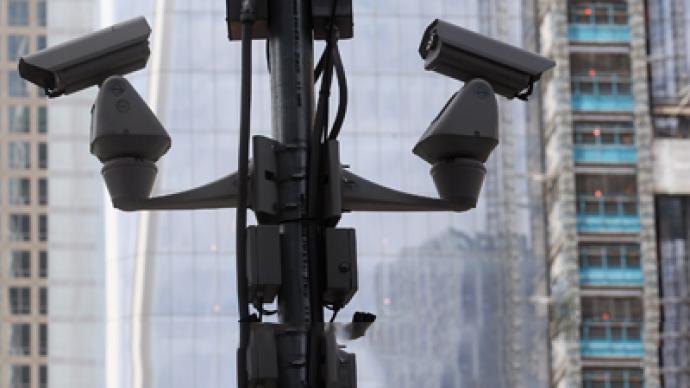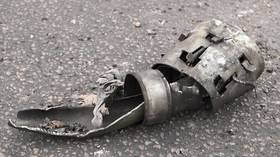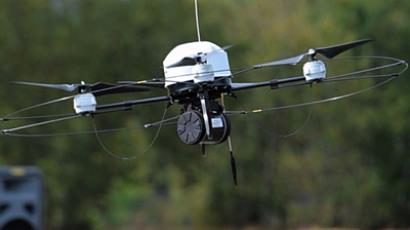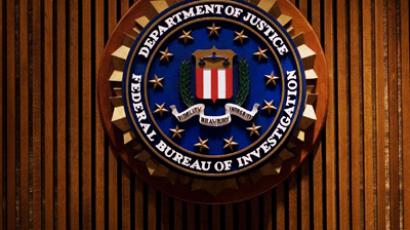License plate scanners let police patrol anyone, anytime

Are you made uneasy by the soaring number of surveillance cameras being installed in big cities across the US? If so, don’t take solace in your sedan: cops are using cameras to collect intelligence on cars, even when no crimes are being committed.
License plate scanners are nothing new for law enforcement, but more and more agencies across the US are relying on the technology as equipment becomes more affordable. As the cost of being able to catch a glimpse at every automobile in town drops day by day, though, the odds of being surveilled for simply riding around town is doing just the opposite.A recent post published on the PrivacySOS.org blog directs viewers to a YouTube video produced by PIPS Technology, the self-described world leader in automated license plate recognition, or ALPR, technology. PIPS’ devices are deployed in police cruisers across the US, and in Little Rock, Arkansas, for example, cops say the equipment is well worth the $18,000-per-unit price tag. But while PIPS may be touting their product as something of a must-have for police agencies, the manufacturer is staying silent when it comes to discussing the blatant privacy violations it commits every second its in use."(It) can scan the mall parking lot in a matter of minutes," Sergeant Brian Dedrick, of the North Little Rock Police Department tells Arkansas Matters of his ALPR scanner. "We couldn't even do that three years go."Sgt. Dedrick is right — ALPRs allow law enforcement to do something that was unheard of only a few years ago.Lieutenant Christopher Morgon of the Long Beach Police Department in Southern California is one of a few cops interviewed by PIPS in their latest advertisement video picked up by the blog, and he agrees that license-plate scanners let his agency do something that was once unheard of. Before adding ALPR technology to cruisers, cops there could only manually dial-in around 150 license plates in a single shift. By equipping patrol cars with high-tech software and a slew of surveillance cameras, though, Lt. Morgon says today the department does a lot more than that.“If you dedicated your day to driving around and putting your vehicle in a place where there’s lots of cars, you could read anywhere from 5 to 10,000 plates in that same shift,” Lt. Morgon says, adding that a single cop car can collect data from upwards of three surveillance cameras simultaneously.Ten thousand plates scanned each day in a single car can put a lot of data in the Long Beach PD’s database, but is all that info used to track down suspects? Lt. Morgon explains in the advert that patrol cars pick up intelligence on every automobile within sight and logs their location and information without ever needing reasonable cause to suspect the driver has committed a crime.“Its catching cars that are parked on the side of the road three lanes over. The old technology never would have done that,” the officer says in the advertisement.“The cameras will catch things you didn’t see, cars you wouldn’t have run, and the beauty of it is that it runs everything,” Lt. Morgon tells the PIPS camera crew. “It doesn’t care whose driving, it doesn’t care what the vehicle looks like. All it sees is a license plate.”While that much is true, it only takes an office a single click of the mouse to input that data into a server and see who owns that car and, presumably, where they are at that given moment.According to Arkansas Matter, at least once police car used in Little Rock records “the exact time and location of every license plate scanned, for up to three years.”In California, Jon Campbell of LA Weekly writes, “The location and photo information is uploaded to a central database, then retained for years — in case it's needed for a subsequent investigation.”As of this past June, Campbell adds, the Los Angeles Police Department itself had around 120 cameras, with the local Sheriff’s Department expected to soon have a total of nearly 300 themselves. In Long Beach, officers plan to have around 45 cameras in all in the coming months — all cameras that are connected to the same servers allowing officers to share intelligence across the state, and lenses don't have to be afixed to cruisers either, but can be installed anywhere in the city.Rita Sklar, the director of the local American Civil Liberties Union chapter, tells Arkansas Matters, "I don't think I have a problem” with the scanner themselves. It’s the sharing of information and how easily it can be connected to individuals, not just automobiles that raise concerns."It's just one chink in the wall of privacy," she says. The International Association of Chiefs of Police (IACP) defends the scanners, though, and notes that while the technology practically commits clean-cut privacy violations, there’s one little step — that single mouse click — that keeps them in the clear:“A license plate number identifies a specific vehicle, not a specific person,” the IACP notes in their official scanner guidelines. “Although a license plate number may be linked or otherwise associated with an identifiable person, this potential can only be realized through a distinct, separate step (e.g., an inquiry to a Secretary of State or Department of Motor Vehicles data system). Absent this extra step, the license plate number and the time and location data attached to it arenot personally identifying. Thus, even though LPR systems automate the collection of license plate numbers, it is the investigative process that identifies individuals.”“That's a real stretch. But it is a powerful legal assertion,” PrivacySOS notes. “By arguing that license plate reader data isn't personally identifiable, IACP is implicitly saying that it mustn't be protected as seriously as does personal information about us that doesn't require clicking a mouse — the ‘distinct, separate step.’”“That's relevant in the real world because it means officers can collect, retain and share this very sensitive information with virtually no restrictions.”In Long Beach, Lt. Morgon believes that the department has raked in around $3 million in traffic ticket fines after using ALPR scanners for only three years. The LAPD has so far invested $1.8 million on the cameras — and have used them to log more than 160 million data points.















